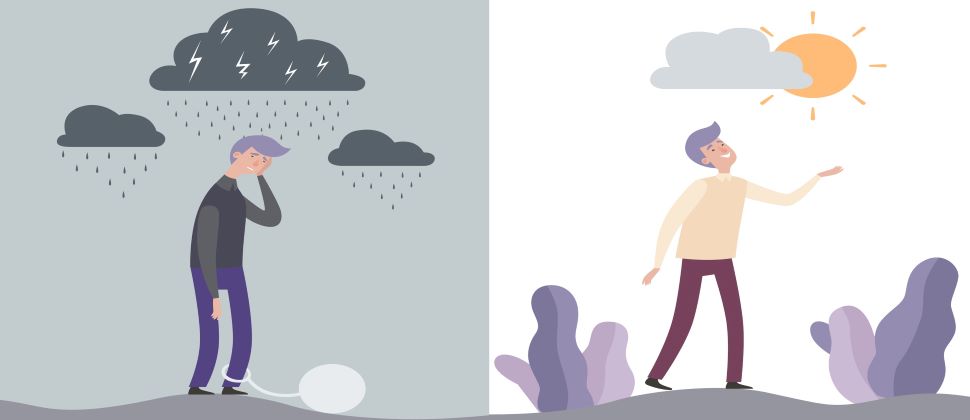Mental Health Wellbeing Elearning Courses
5th March 2020

You will probably experience some kind of mental health issue at some point in your life.
According to Mind, the mental health charity, 1 in 4 people will experience a mental health problem each year. And 1 in 6 report experiencing a mental health problem like anxiety and depression in any given week.
It’s obvious that mental health is a common issue – whether it’s a mild problem that passes quickly or a more persistent affliction – and one that will inevitably affect many people in the workplace.
Our mental health and wellbeing e-learning courses help employers to kick-start conversations about mental health and also give employees some practical techniques to help them cope with day-to-day stresses.
We’re particularly proud of our recent series of videos that we produced with Kate Faragher for our mental health e-learning series, which focuses on helping colleagues to be more supportive, to develop their own resilience, and to learn strategies for dealing with depression and anxiety. We’ve selected a few highlights from the video series below.
Building your own resilience
What’s the story?
In our series on workplace mental health, we go through all the stages of creating a personal wellness plan. This is designed to increase personal resilience, which is your ability to cope with stressful events without suffering from stress or experiencing any symptoms.
Part of this process involves getting to know yourself better, and taking time to reflect on how you feel and what causes you stress and worry. Pausing and tuning into our own bodies can help us identify the things in our lives that cause us stress – things we might not be aware of.
Supporting others
What’s the story?
When we encounter someone in emotional distress, our first instincts are not always the most helpful. Most of us want to help a friend or colleague experiencing anxiety or depression, and we may instinctively ask lots of questions and try to offer solutions.
It’s important to remember that other people don’t always want the support we would choose for ourselves. Sometimes, all a person needs is a friend who can simply be there. Instead of a therapist, your friend might want a walking partner. Or a shopping buddy. Or just someone to watch TV with. By taking the time to be with your friend, you can show them you care and help to distract them from their concerns.
Coping with anxiety
What’s the story?
We all experience moments of anxiety from time to time. Whatever your experience of anxiety, it is useful to have some strategies for dealing with it, so when the time comes you feel prepared and better able to work through it.
Small steps you can take include noticing how you are feeling. If you feel anxious or stressed or depressed, acknowledge these feelings, and consider what is causing them. Is something unusual happening today – or do you always feel this way?
Movement can help you unwind. Something as simple as a walk – or a few star jumps – can help reset your breathing and your heart rate. Or try thinking about the things you are grateful for. This might be your family, friends, hobbies, work, a favourite book or an upcoming holiday.
Depression
What’s the story?
Depression doesn’t always announce itself. We might recognise our depression when we notice changes in our habits or behaviours. We might feel less sociable, or find that we drink more, eat poorly or have trouble sleeping.
The first step is recognising that you are depressed. Treating depression is different for everyone, but for many of us, the best approach is to try small steps towards a more positive life. This can feel very challenging, but just a tiny change or a chance to connect with people can give you a boost. This might be as simple as going for a walk with a friend, or chatting to colleagues about their lives.
Mental health e-learning from Marshalls
Mental health is a big, complex subject. These video snippets are intended to provide a glimpse into our e-learning courses so you can see the quality of our content. This high standard is reflected in everything we do.
If you would like more information on mental health issues, we recommend the charity Mind as a good source of advice and support.
For more information on our e-learning courses, please contact our friendly team.


